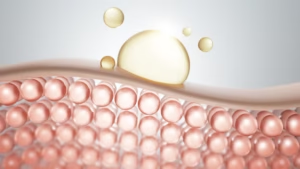Why Food Ingredients in Skincare Can Trigger Food Allergies – Especially in Eczema
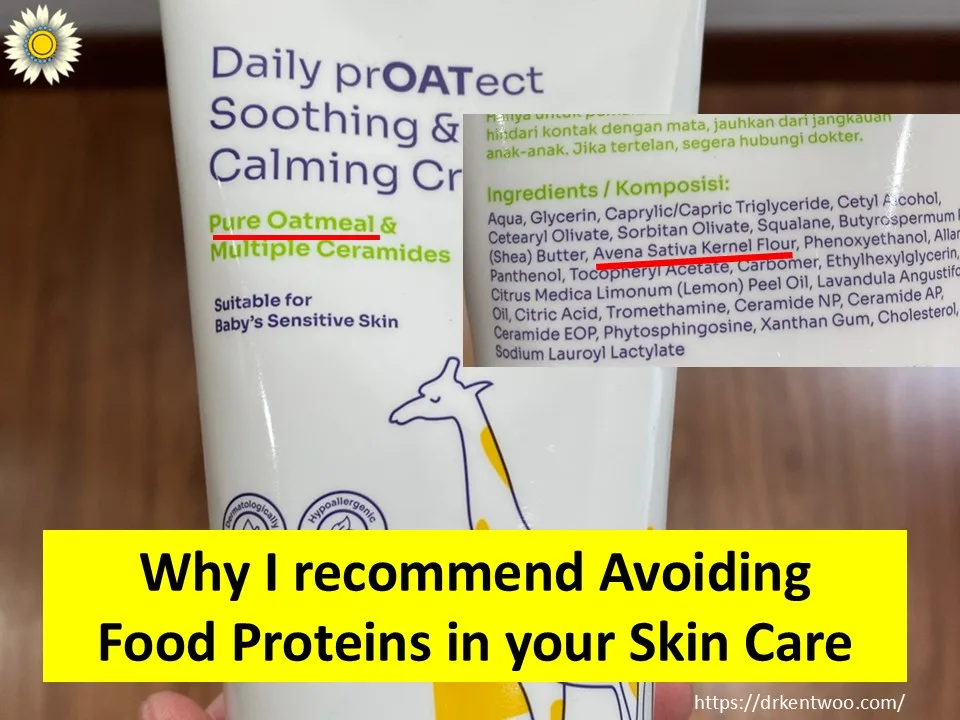
I see many patients with eczema. And with eczema often comes food allergies.
I always advise my patients: Avoid applying creams containing food ingredients to your skin.
Yes, you’ve seen food based creams on YouTube, TikTok, Instagram.
Yes, the influencer has 10 million views.
And I have none. Okay, maybe 10 views.
But that doesn’t mean I’m wrong.
Still skeptical?
When Skincare Becomes a Sensitizer
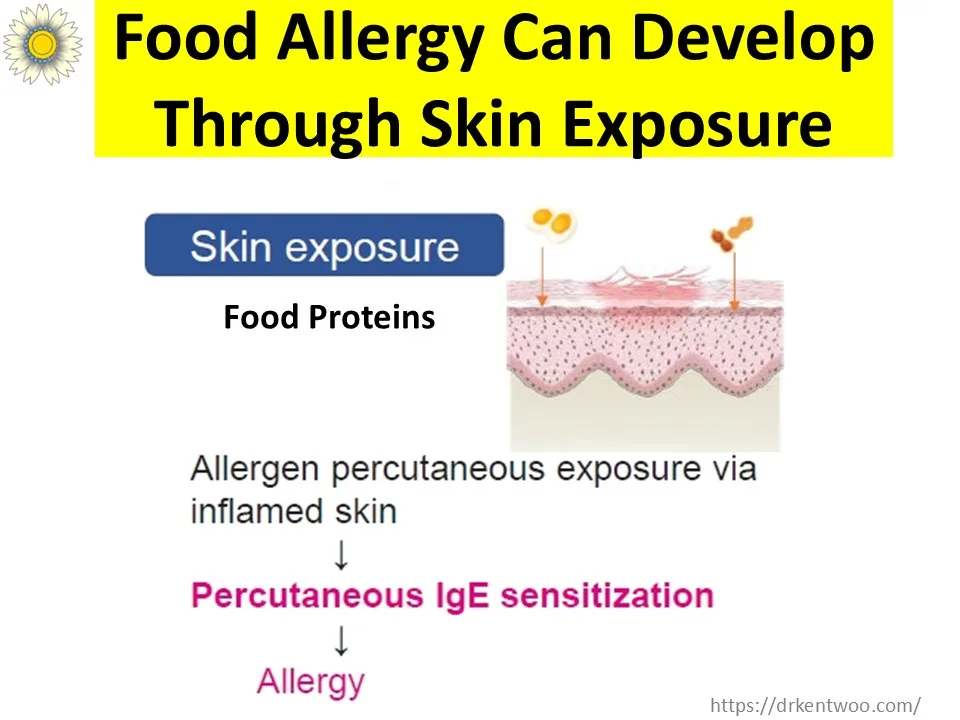
Our skin is our first line of defense. But when it’s broken or inflamed—like in atopic dermatitis (eczema)—that barrier becomes leaky. Applying products containing food proteins can lead immune cells in the skin to misidentify these proteins as threats. This process, called transcutaneous sensitization, sets the stage for future food allergies.
A Surprising Allergy Story
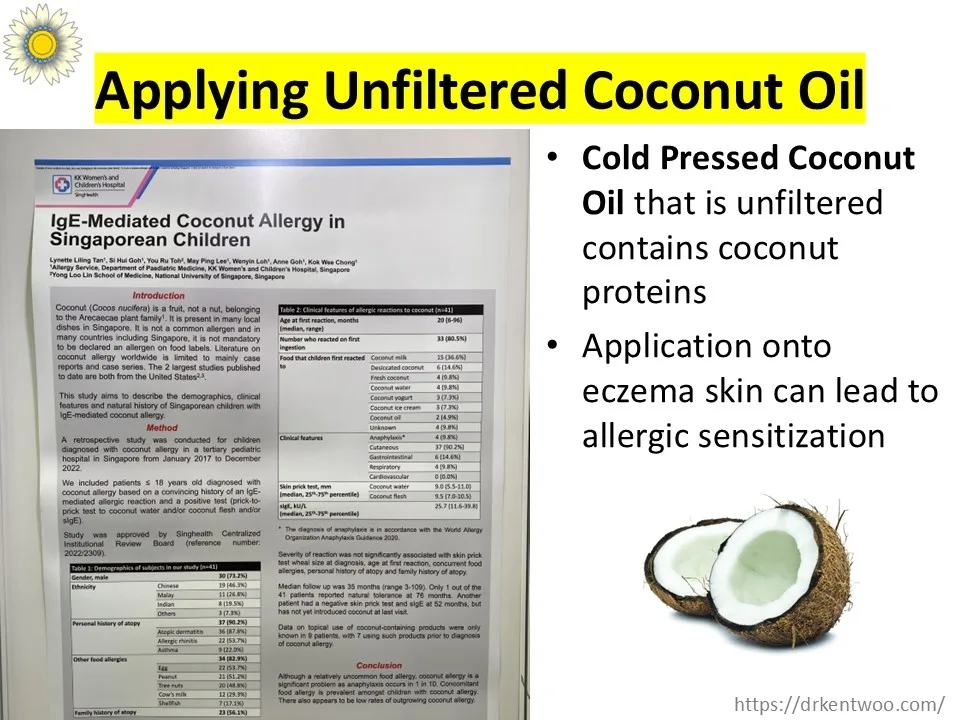
A few years ago, one of my patients suffered from eczema. Her parents brought her to see me because she developed a severe allergic reaction after drinking coconut water for the first time.
- Had she eaten coconut before? No.
- Had she consumed any foods containing coconut? No.
- Did you apply coconut oil to her skin for eczema? Yes, doc, we heard it could help!
I spoke to my colleagues in Singapore and Thailand—they’re reporting similar cases!
True Allergy Cases
Peanut Allergy After Application of Peanut Oil in Creams
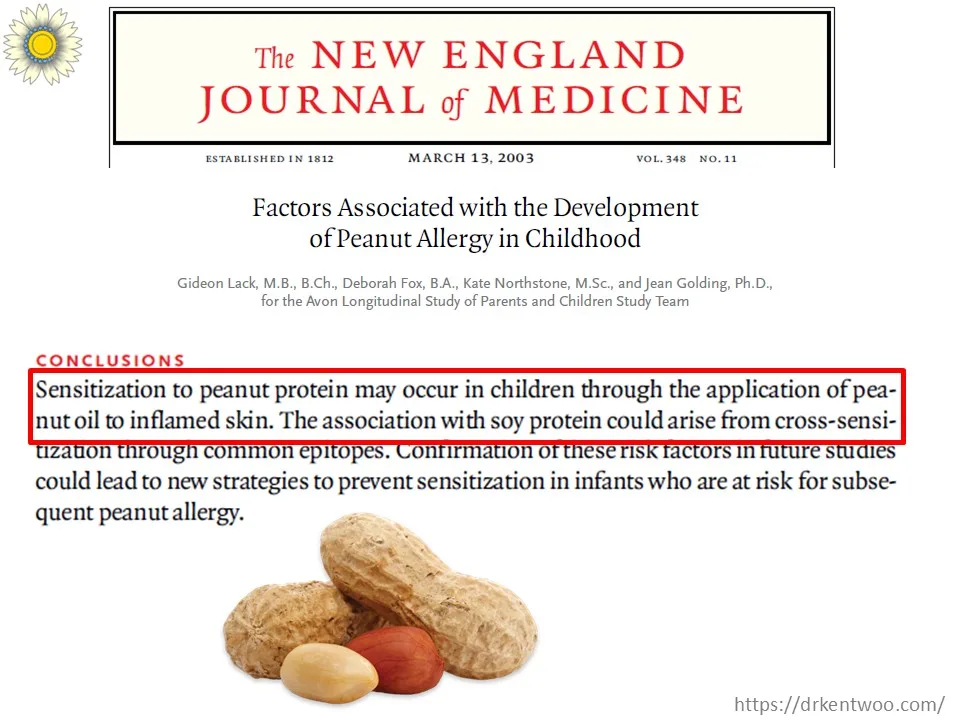
In the ALSPAC birth cohort, researchers linked peanut oil application in creams to later peanut allergy. Children with inflamed skin who used peanut‑containing products were more likely to develop peanut sensitization. PubMed
Oat Allergy from Oatmeal Creams
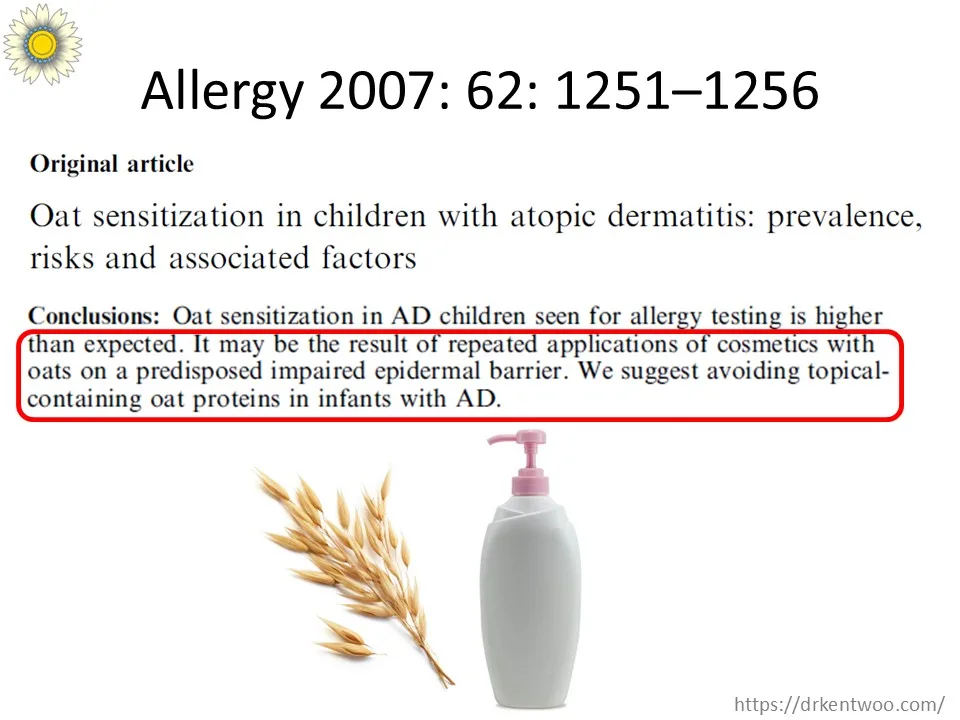
The study above warned against using oat proteins in skin care. A child with eczema used an oat‑based moisturizer and later suffered anaphylaxis after eating oats. This case underscores the real danger of transcutaneous oat sensitization. PubMed
Goat’s Milk Soap Turns Dangerous
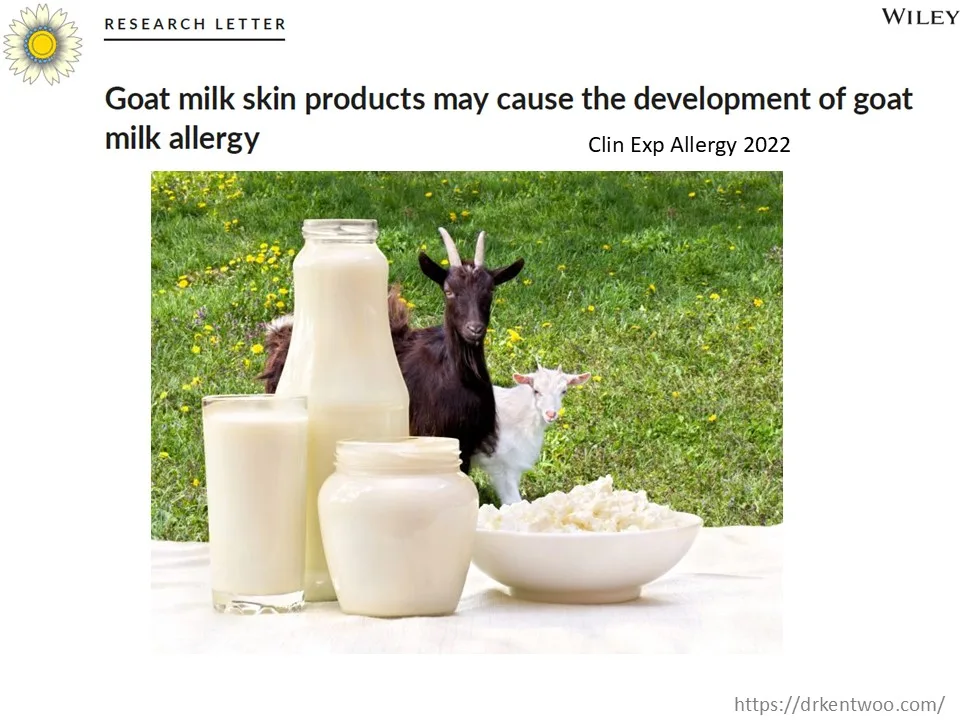
The study above was a report of 3 separate cases in 2022. Another study reported a family that developed severe goat’s milk allergies—none had issues eating goat’s milk before. The culprit? Goat’s milk soap used in their home. PubMed
Beauty Soap Causing Wheat Allergy
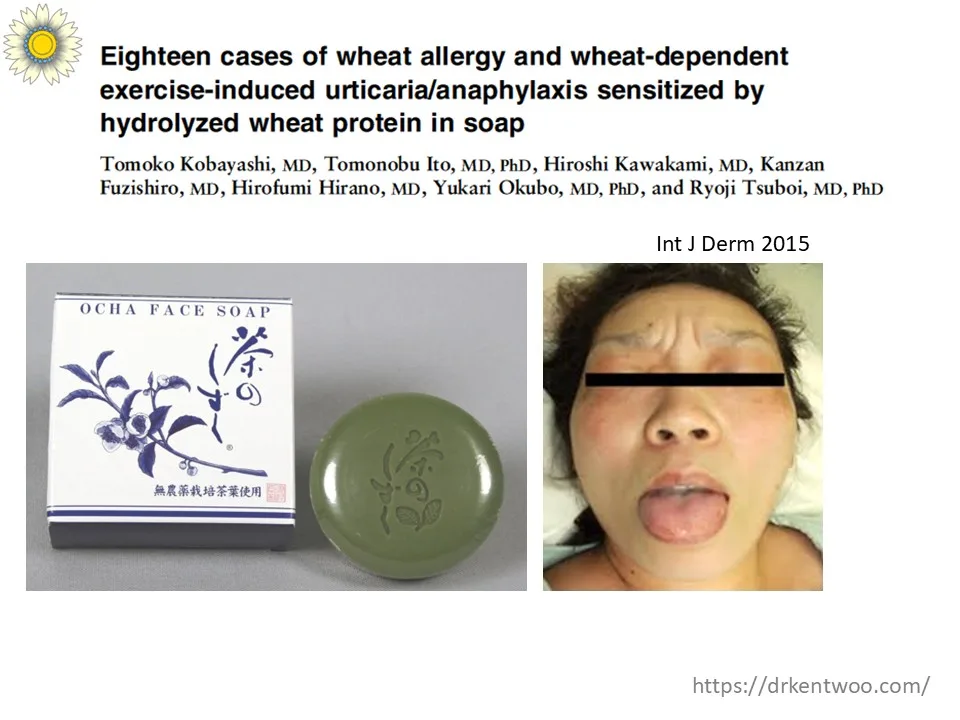
I have been nagging everyone about wheat proteins in many skin care products. And I still find them around.
[Click here to read about how it can cause a particular form of wheat allergy]
Major Food Allergens Hiding in Your Creams!
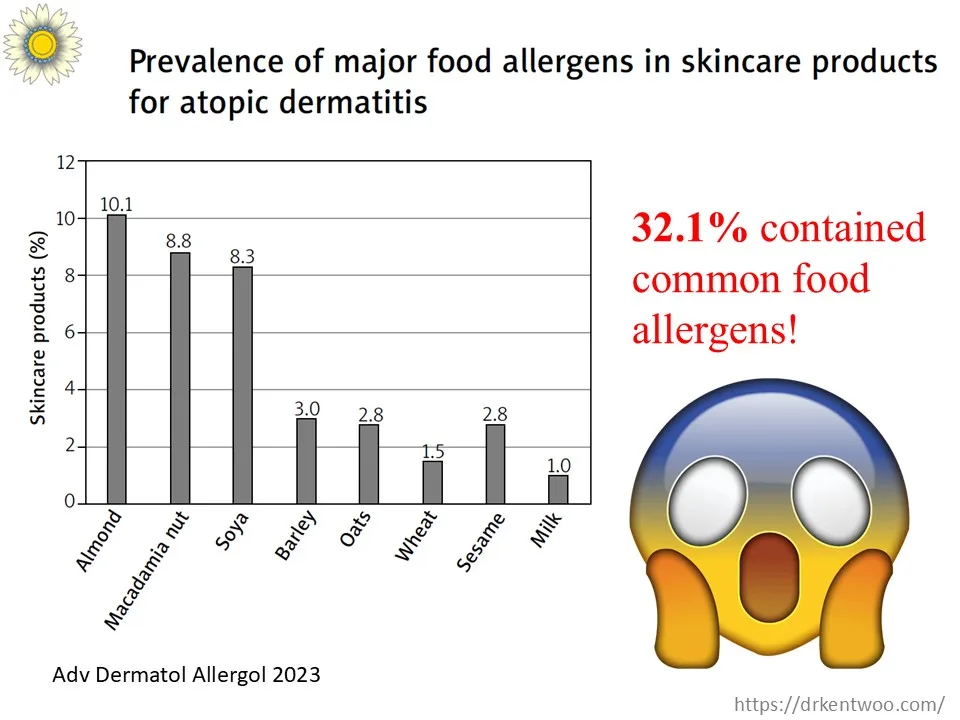
A landmark study analyzed 154 eczema‑care products and found that 32.1% contained ingredients derived from common food allergens – mostly in the form of oils or extracts. PMC
I must point out that certain oils are suitable as moisturizer for eczema. The difference is that these oils are filtered to remove any allergenic proteins.
📌Special Alert: Oils that are cold-pressed and unfiltered may contain proteins and pose a risk.
Why Children with Eczema Are at Highest Risk
Children’s skin barriers are still developing. Studies show that up to 35% of children with atopic dermatitis become sensitized to foods they’ve only ever encountered on their skin.
This model explains why timing and route matter:
- Skin (cutaneous) exposure to allergen → Sensitization
- Oral exposure to allergen → Tolerance
When inflamed skin meets food proteins before the gut does, your immune system tends toward allergy rather than tolerance.
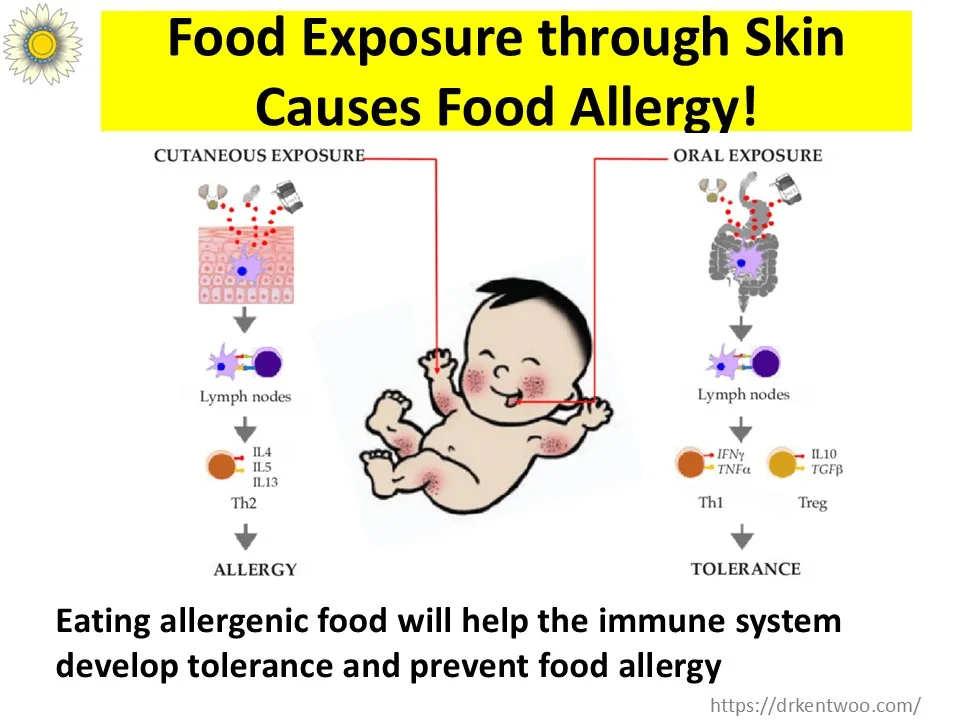
Information You Can Use
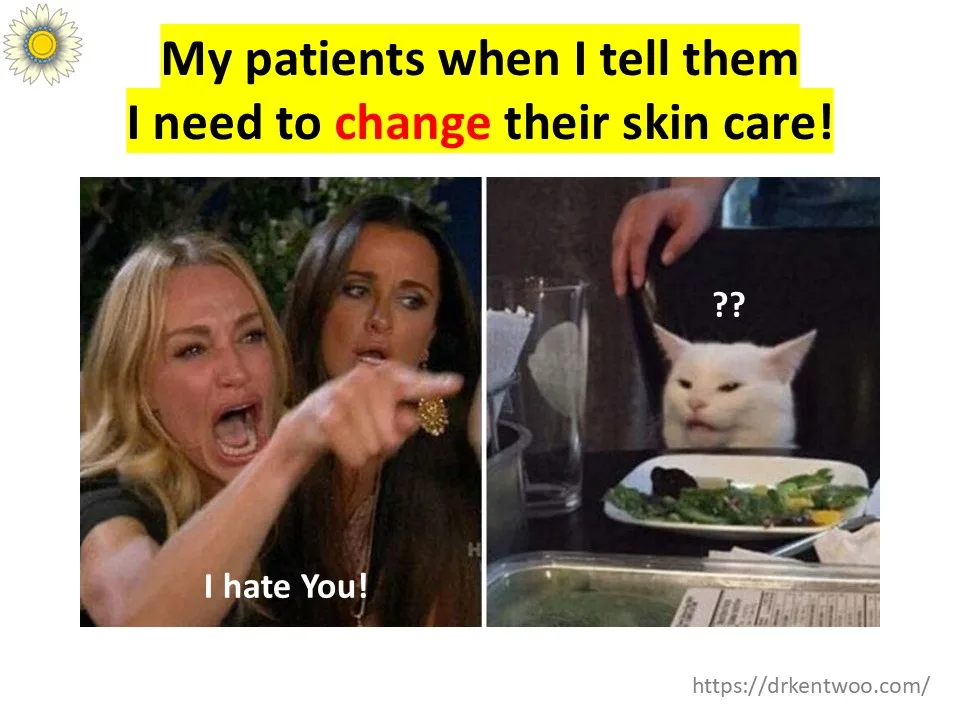
- Read labels carefully. Avoid products listing food ingredients or hydrolyzed wheat proteins. Especially if you have eczema.
- Favor hypoallergenic emollients designed for eczema. Look for formulations made for atopic skin without nut, seed, or dairy derivatives.
- Understand that Natural is NOT Hypoallergenic. Just because it is natural, doesn’t mean it cannot cause allergy. [Read more about this myth here.]
- Consult experts. If you or your child have eczema, come see us at The Allergy Immunology Clinic before using “natural” skincare.



